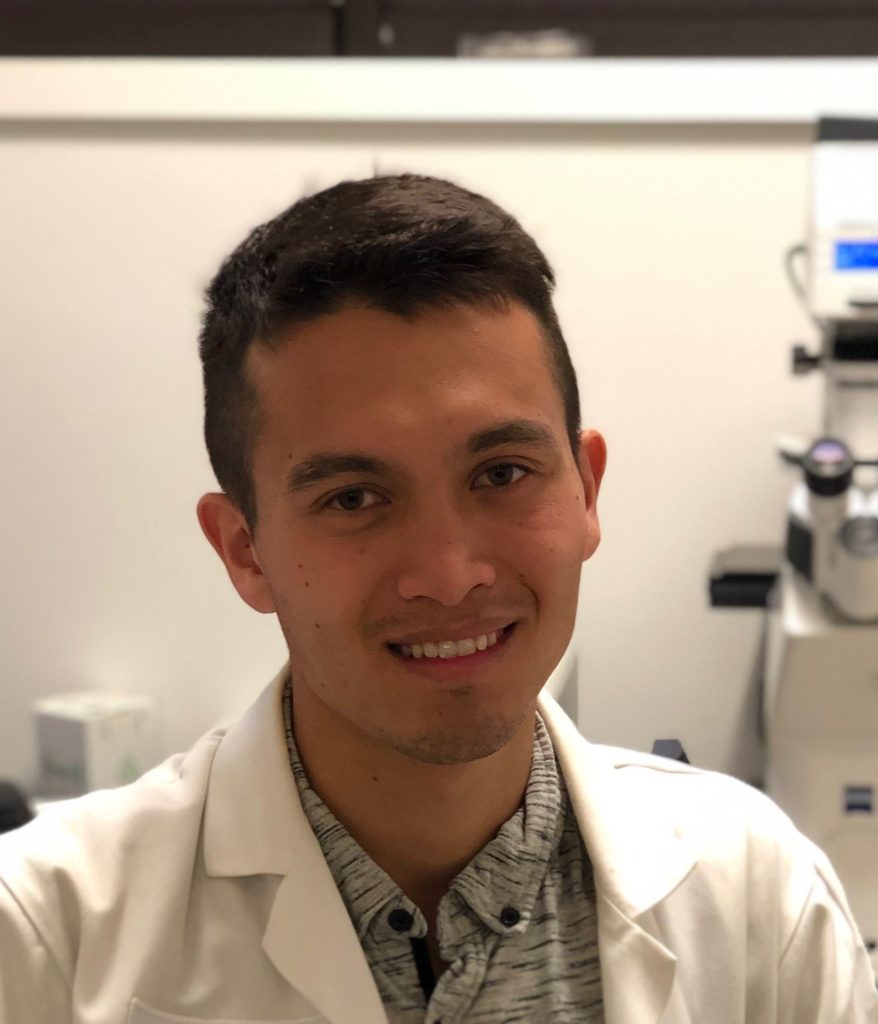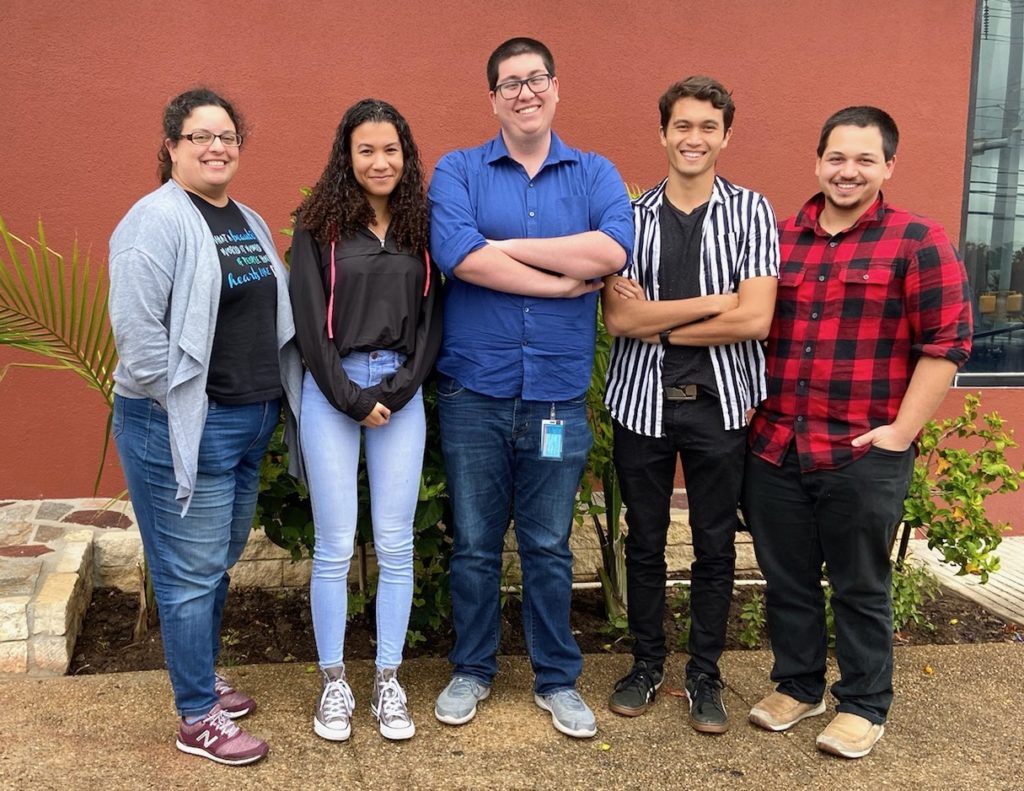Ronald Cutler Receives 2020 Armand Guarino Award for Academic Excellence in Masters Studies

 Recent graduate Ronald Cutler has received the 2020 Armand Guarino Award for Academic Excellence in Masters Studies. He was also the 2020 recipient the Rennels Memorial Award for Excellence in Graduate Studies given by the Department of Cell Systems and Anatomy and the 2020 Spring Travel Award given by the Graduate School of Biomedical Sciences. Ronnie is a graduate of the Biotechnology Track of the Master of Science in Cell Systems and Anatomy program. His mentor was Dr. Erzsebet Kokovay.
Recent graduate Ronald Cutler has received the 2020 Armand Guarino Award for Academic Excellence in Masters Studies. He was also the 2020 recipient the Rennels Memorial Award for Excellence in Graduate Studies given by the Department of Cell Systems and Anatomy and the 2020 Spring Travel Award given by the Graduate School of Biomedical Sciences. Ronnie is a graduate of the Biotechnology Track of the Master of Science in Cell Systems and Anatomy program. His mentor was Dr. Erzsebet Kokovay.
The Guarino Award is the highest student recognition given by the Graduate School and is a tribute to the awardee’s outstanding accomplishments in biomedical research, leadership, and extensive involvement in service during their tenure as a graduate student.
Dr. James Lechleiter, a member of Cutler’s thesis committee had this to share, “In short, Mr. Cutler is an exceptional young scientist. He is extremely bright, reads the literature with impressive depth, he is hard-working and is an excellent experimentalist. At the personal level, Mr. Cutler is confident and at the same time, very approachable. When Ronnie speaks, people listen.”
The award includes a certificate and a check of $1000. Typically, the award is presented at the Annual Convocation of the Graduate School of Biomedical Sciences, but this year, in light of the pandemic, we will not be holding convocation.
Cutler demonstrated many qualities of good leadership and was eager to get involved in the community. He was nominated as the student representative for the Department of Cell Systems and Anatomy, captain of the Cell Systems and Anatomy Department’s American Heart Association walkathon and fundraising team, and a volunteer at numerous science fairs throughout San Antonio.

His research focused on why the adult neural stem cell pool shrinks during aging, which has been implicated in cognitive decline. He explained that his research suggests that the innate immune cells of the brain, microglia, contribute to the observed decline of the stem cell pool through an dysregulated increase in phagocytosis of neural stem cells during aging.
The significance of his research was highlighted by UTSA Professor and Director of the Brain Health Consortium Dr. Jenny Hsieh who wrote, “This type of research is foundational to the development of either preventative or rejuvenative therapies to combat the reduced neural plasticity with aging.”
“This research is an important contribution to not only the field of neural stem cell research but more broadly to aging and stem cell research,” Cutler said. “This is because research thus far has focused on intrinsic processes within stem cells and not the extrinsic interactions between stem cells and the surrounding cell types which make up the stem cell niche.”
He is currently a graduate student in the Biomedical Science Ph.D. program at Albert Einstein College of Medicine where he is perusing his quest on unravel the mechanisms of human aging. As for his future, Erzsebet Kokovay had this to say, “He is the caliber of student that will shine wherever he is, and I have no doubt will have his own lab as an independent researcher in the future.”
